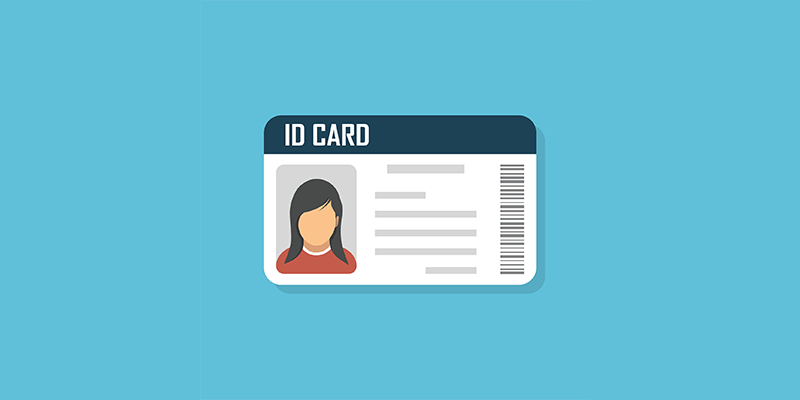How to Run Background Checks on Employees
 During the hiring process, HR professionals trust their instincts. Instinct may not provide a full picture, however, even if the candidate is well-spoken. A bad fit could put the company, employees, or customers at risk. Background checks can be used to verify that they have the education or licensing required for the job. And their criminal history could increase the risk of negligent hiring claims.
During the hiring process, HR professionals trust their instincts. Instinct may not provide a full picture, however, even if the candidate is well-spoken. A bad fit could put the company, employees, or customers at risk. Background checks can be used to verify that they have the education or licensing required for the job. And their criminal history could increase the risk of negligent hiring claims.
Here are some of the best practices for running background checks on employees.
Timing During the Hiring Process
The complete process of hiring an employee could take as long as 68 days with both job seekers and hiring managers getting frustrated at the long wait times. Background checks performed too early in the hiring process can be costly and ineffective. The optimal time for a background check is when the hiring manager can narrow the field to a few candidates, and then a background check can be conducted after a job offer. The employer must also inform applicants that the job offer is contingent on the results of a background check.
Consent to a Background Check
The Fair Credit Reporting Act (FCRA) requires a standard set of protocols for conducting background checks. Hiring managers must obtain consent and authorization from candidates, presenting them with a clear and concise form asking for their consent to be screened. Consent forms will contain the set of background checks for consideration and inform applicants that the information will be used for employment purposes. The applicant has the option to request a copy of their background check results, and they should receive a Summary of their Rights under the FCRA.
Types of Background Checks
Background checks will reveal basic information about the candidates, such as identity verification and criminal history. Any other particular screens can be added as related to specific job duties. A basic background check will include the following:
- Identity verification - An instant search to confirm the applicant’s full name, address, social security number, date of birth, known aliases, and address history.
- Criminal database check - Criminal records pulled from the county, state, and federal jurisdiction.
- National Sex Offender Search - Revealing if the applicant is registered as a sex offender.
Other screens could take a few more days to gather a more complete picture of the applicant. Applicants driving a company vehicle should also be subject to an MVR or driver’s license search. A drug screening may also be necessary for those operating heavy machinery. Additional screens can also ensure the candidate has received a degree, certification, or licensing.
Reviewing Background Check Information
Red flags in background check results may not necessarily mean the job offer must be rescinded. The FCRA protects individuals from discrimination based on false, misleading or outdated information on their background check reports. Applicants have the right to review and dispute any information before it can be used against them.
The Equal Employment Opportunity Commission (EEOC) also protects applicants from discrimination based on their criminal history. The EEOC asks HR professionals to review criminal history information to determine:
- The nature and gravity of the crime
- The time since the crime occurred or the sentence was completed
- Whether the crime affects the job responsibilities
A best practice to ensure compliance and consistency is to use a job-specific decision matrix that allows hiring managers to know which criminal convictions disqualify a candidate for the job.
Rescinding a Job Offer
The FCRA also provides specific instructions for rescinding a job offer based on the results of a background check. The applicant will be sent a pre-adverse action notification within 3 days of receiving background check results to inform them of the potential adverse decision. The notification will also include:
- A written summary of the screening results
- Copy of the background check report
- Copy of “Summary of Your Rights Under the FCRA”
- Contact information for the background check company
- Hiring manager's contact information
The applicant will be given some time to dispute the results of the background check. If there is no dispute, the adverse action can occur but must also be sent to notify the applicant. An adverse action notice informs the applicant that the job offer is being withdrawn based on the results of the background check. The candidate will also receive notification of their right to obtain another copy of the report and their right to dispute information.
Working with a Trusted Background Check Company
HR professionals run the risk of non-compliance if background check results are not verified or if FCRA protocols are not followed. Some background check companies could return false positives or inaccurate data. A professional background check company will be accredited by the Professional Background Screening Association (PBSA) and have FCRA-certified staff available to help with compliance.
Hiring managers should also expect a trusted background check partner to be transparent in their cost and processes and help to create a positive candidate experience. Working with a trusted background check company will help employers hire the best candidate quickly and efficiently. HR professionals can trust their instincts when it comes to interviewing candidates but trust their background check company to help through the screening and hiring process.
Share this
You May Also Like
These Related Stories

Why Does an Employer Need a Credit Check?

Six Resources That Will Improve Your Background Check Process


